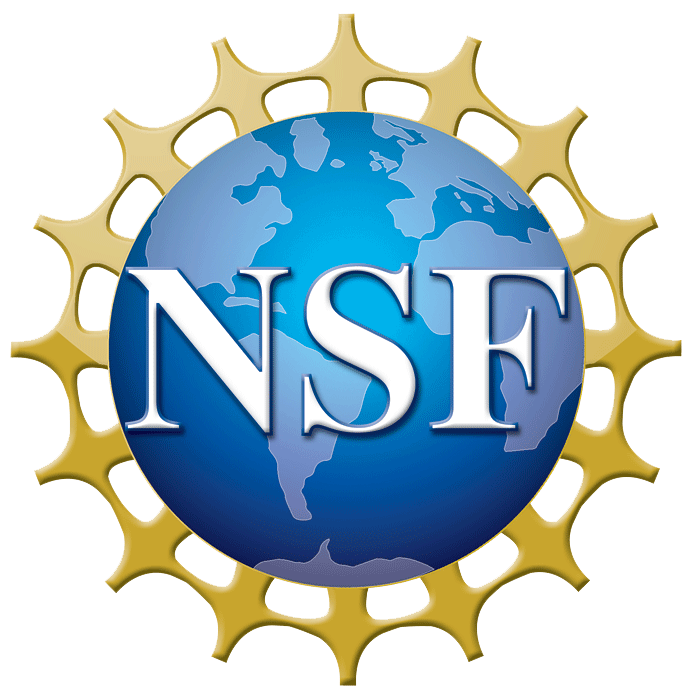For 2023, 30 teachers are participating in the fifth and final year of CSForAll: Adapt, Implement, and Research at Nebraska (AIR@NE), an NSF-funded grant that examines the adaptation and implementation of a validated K-8 Computer Science curriculum in diverse school districts. The grant expands the Research-Practitioner Partnership between the University of Nebraska-Lincoln and Lincoln Public Schools (LPS) to other districts across Nebraska. The primary goal is to study how districts facing different contextual challenges, including rural schools, majority-minority schools, and Native American reservation schools, adapt the curriculum to fit local needs and strengths to broaden participation in computer science.
CS K-8 Curriculum Resources for Teachers
We have created a repository of all the information collected from the AIR@NE research done at UNL. The purpose of this resource is to allow all teachers to access cutting-edge theories and tooling for teaching Computer Science to K-12 Students. The website is organized around the K-12 Framework, and uses its practices and standards to organize itself. In addition, there are grade levels shown for all the resources to help you better gauge what would work in your classroom. Use this section to search and find resources that are interesting to you. There are a variety of categories available to choose from:
- Practices
- Standards
- Grades
- Audience
- Type
Cohorts and benefits
Cohorts and benefits
A cohort of teachers were recruited each year to take summer courses (2019-2023). The fifth cohort will be held online, starting in summer 2023 with academic-year follow-up in 2023-2024.
Participants received:
- Tuition and fees for two graduate courses on Zoom (except for the $50 graduate application fee) in Summer 2023: Introduction to Computer Science I for Teachers (CSCE 805T, June 12-16 and 19-23 in the mornings) and CS Pedagogy (TEAC 851L, June 12-16 and 19-23 in the afternoons); optional: tuition and fees for one graduate course the following summer
- $1,500 worth of computer science hardware and software (i.e. iPads, robotics)
- Funding to attend one conference (e.g., NETA or CSTA)
- During academic year, attend five Saturday meetings and earn $100 per meeting
- Participation in a statewide community of K-8 computer science teachers, providing mutual support for teaching and learning computer science.
The first cohort of 29 teachers took courses in Lincoln in the summer of 2019, while the second cohort of 24 teachers from Central Nebraska and the third cohort of 18 teachers and fourth of 17 teachers statewide took courses online in 2020, 2021, and 2022, respectively.


'Coding with Carl'

Matt Rinne, playing Carl in a Coding with Carl video, teaches his students about algorithms.
AIR@NE Cohort 1 teacher Matt Rinne has one piece of advice for classroom teachers hoping to teach computer science for the first time: Something is always better than nothing. Rinne, a computer science teacher at Pyrtle Elementary School in Lincoln, Nebraska, believes in the value of struggling through challenges, especially for teachers approaching new topics, such as computer science. “I think sometimes people are scared about teaching it wrong, but the struggle is the whole thing,” Rinne said. “Just having the experience of using computers is better than not.” For about 20 to 30 hours a week, the computer science teacher adopts a Bill Nye-inspired identity to help his students learn this mindset with humor and creativity. His video series, “Coding with Carl,” takes a goofy look at some complicated computer science concepts, which Rinne says helps his students (and their parents) make learning fun. The videos have especially helped with distance learning in many Lincoln Public Schools classrooms.
More articles
LPS Communications: Pyrtle teacher gets creative with computer science videos
Channel 10/11 News: Coding with Carl: LPS computer science teacher gets creative with curriculum
Personnel
Dr. Leen-Kiat Soh, Computer Science and Engineering, Principal Investigator
Dr. Gwen Nugent, Child, Youth and Family Studies, Co-Principal Investigator
Dr. Wendy Smith, Center for Science, Mathematics and Computer Education, Co-Principal Investigator
Dr. Kent Steen, Lincoln Public Schools, Co-Principal Investigator
Dr. Guy Trainin, Teaching, Learning and Teacher Education, Co-Principal Investigator
Administrative support for AIR@NE is provided by UNL’s Center for Science, Mathematics and Computer Education.


